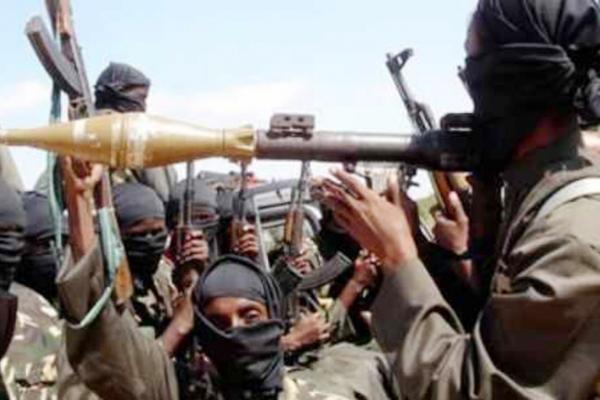Boko Haram’s self-declared caliphate in Nigeria is unlikely to last, writes Haytham Nouri
In a move echoing the tactics of the Islamic State in Syria and Iraq, the hard-line militant group Boko Haram has declared a caliphate in northern Nigeria.
Boko Haram militants slaughtered many of the inhabitants of Gamboru-Ngala, a Nigerian town near the border with Cameroon, which they captured after a battle with the Nigerian army and security forces, according to AFP. Many of the town’s residents were forced to flee to Cameroon.
Earlier, Boko Haram announced it had declared a caliphate in the states of Borno, Yobe and Adamawa in northern Nigeria.
According to Reuters, it is hard to get accurate information about the movements of Boko Haram in northern Nigeria because of the difficulty of travel, poor communications, and the small number of humanitarian workers.
The recent actions of Boko Haram illustrate how this group, which has possible connections with Al-Qaeda in the Islamic Maghreb (AQIM), is emulating the tactics of the Islamic State (IS) group.
Interestingly, there are similarities between Iraq and Nigeria, the two countries in which the self-styled caliphates have been declared.
Iraq’s population includes Kurds, Sunnis and Shias who participate in the government according to a sectarian quota that grants the presidency to the Kurds, the parliament speakership to Sunnis, and the premiership to Shias.
Nigeria’s population includes a Christian majority in the south and a Muslim minority in the north, and its presidency rotates between the two communities.
Sectarian warfare in Iraq flared in 2006 and 2007, beginning with the bombing of the Imam Askari shrine in Samarra. Nigeria has also experienced sectarian strife; several northern states have adopted sharia (Islamic law).
Both Iraq and Nigeria are major oil producers and members of OPEC. But while Nigeria has no strong neighbours to help it out, Iraq is surrounded by major regional powers that are closely following its domestic situation, said Professor Awad Al-Karsani of Khartoum University.
Both the Islamic State and Boko Haram started their activities in remote areas before moving into cities, said Professor Khedr Abdel Baqi, who teaches mass media in Nigeria.
The brutality of both IS and Boko Haram, especially in their treatment of women, is strikingly similar. In Nigeria, Christian schoolgirls have been abducted and in Iraq Christian and Yezidi women have been sold as slaves, said Sudanese women rights activist Fatema Al-Hosein.
Reuters recently reported that “300 Yezidi women were sold to ISIL (the Islamic State in Iraq and the Levant) members in Syria for $1,000 each.”
Nigeria’s The Nation newspaper says that Boko Haram is coming closer to achieving its dream of creating a state of its own, but expects the army to move against it soon.
There are signs, however, that neither Boko Haram nor the army currently have the firepower to gain a decisive victory. In recent confrontations, Boko Haram fighters failed to blow up the bridge connecting Gamboru-Ngala in Nigeria with Fotokol in Cameroon.
The militants did, however, seize Gamboru-Ngala after 500 army personnel withdrew from the town. According to AFP, the army personnel spent the night in a customs office in Cameroon before returning to their country the next day.
Analysts working for the Johannesburg-based African Research Institute draw parallels between Boko Haram’s activities and those of the Biafra insurgency, which lasted for three years and claimed the lives of nearly one million people who perished not just in fighting but also in the ensuing famine.
Biafra became an independent state in 1967 but was reintegrated into Nigeria in 1970.
The fate of Boko Haram’s caliphate may not be much different, experts say.



